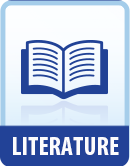|
This section contains 360 words (approx. 1 page at 400 words per page) |

|
To His Excellency General Washington Summary & Study Guide Description
To His Excellency General Washington Summary & Study Guide includes comprehensive information and analysis to help you understand the book. This study guide contains the following sections:
This detailed literature summary also contains Bibliography on To His Excellency General Washington by Phillis Wheatley.
Phillis Wheatley's poem "To His Excellency General Washington" is as unique as the poet herself. The poem was sent to George Washington, the newly appointed Commander-in-Chief of the Armies of North America, in October of 1775, well before American Independence was declared in 1776. Washington, as busy as he was with organizing the colonies to take on the British, sent a letter back to Wheatley thanking her for the poem and inviting her to visit him if she ever came to Cambridge, Massachusetts. The two did meet in March of 1776, seven years before the war was finished and true independence was declared. Washington was roundly lauded in poems and prose after the successful conclusion of the Revolutionary War in 1783, but Wheatley's poem was written when the war's outcome was very uncertain, the British being the obvious favorites to win. It can be said that Wheatley was the groundbreaker in beginning the Washington legend as the "father of our country," yet she stands as a groundbreaker in even more important ways. In 1773, two years before this poem was written, Phillis Wheatley, a twenty-yearold slave, published her collection of poems entitled Poems on Various Subjects, Religious and Moral, the first book of poetry published by an African American, and only the second book by a woman in what would become the United States. Considering that Ms. Wheatley was bought at a slave auction in 1761, not able to read or write and incapable of speaking English, her book of poems is truly astounding. She was revered in many countries. Benjamin Franklin offered his services to her, as did many other high- ranking men in America. In April of 1776, the author and political philosopher Thomas Paine published Wheatley's poem to Washington in The Pennsylvania Magazine. The central theme of this poem is "freedom's cause," the colonies' struggle for freedom from England, which General Washington was assigned to lead. Like many other residents of Boston, Wheatley's feelings for the British regime turned from obedient admiration to mild admonition, and finally, to support of the revolution. The poem anticipates the future for the new republic, and praises the efforts of its military leader and first president.
Read more from the Study Guide
|
This section contains 360 words (approx. 1 page at 400 words per page) |

|



